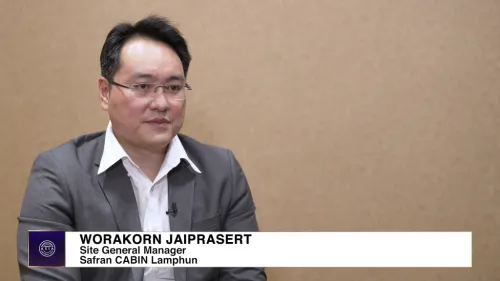China’s oncology investment to accelerate cancer innovation
China's growing pharmaceutical industry could drive developments for cancer treatments.
Cancer treatment approach is now pivoting to a more precise genomic-based method, with potential of accelerating as China invests in oncology, according to Yoshihiro Suwa, partner at Roland Berger.
Suwa said that cancer treatment and drug innovation have undergone significant transformations over the last decade, which necessitates increased investment, especially for comprehensive trials tailored to individual patients' genetic profiles.
“The trials are needed to find that good treatment and targeted to more specific patients. So once China invests into oncology, this will accelerate that innovation in concurrency and this will benefit the patient,” he said.
Suwa pointed out that while older cancer treatments primarily targeted body parts, modern treatments are pivoting to genomics. The change means targeting specific genes potentially linked to cancer development, opening up a vast array of treatment possibilities.
Major pharmaceutical innovations have been consistently rated in the US, Switzerland, the UK, Japan, and Germany which represents over 80 percent of the global innovation market.
Suwa said that these countries make the competition really high as they try to strike deals as early as possible, creating a struggle for small to midsize pharma to capture such opportunity.
“So, small size pharma is trying to find an authentic source of innovation. And if China comes to the source of innovation, that will be a good diversification for mid-sized pharma, and they have a higher opportunity to secure some of the deals at much more affordable prices than what they can find in the US,” Suwa explained.
While Japan remains a global and Asian leader in pharmaceutical innovation, China presents a fresher, more affordable source of innovation.
Suwa detailed, "Japanese Big Pharma already has a footprint in leading markets like the US or Europe, so they often develop or launch products independently. In contrast, Chinese pharma prioritises the domestic or greater China market, providing more partnership opportunities for mid-sized pharma outside China."
He pointed out the outdated notion of seeing China merely as a market for cheaper generics. Today, China is emerging not just as a market for innovative drugs but also as an innovation hub. A crucial factor behind this shift is the expanding talent pool. Suwa noted, "Key talent in China, having worked with multinationals or abroad, brings global pharma expertise back to China, elevating local practices to global standards."













